I believe it's important to have a sense of community and belonging in whatever it is you do, so I've created this page to share with you the stories of other blind scientists that I know. I hope that by communicating their stories and success (along with my own), we can build a community of blind scientists. I hope that these stories will also inspire and encourage other blind and visually impaired individuals to pursue careers in STEM, and further expand the blind scientist community. Check out their stories below!
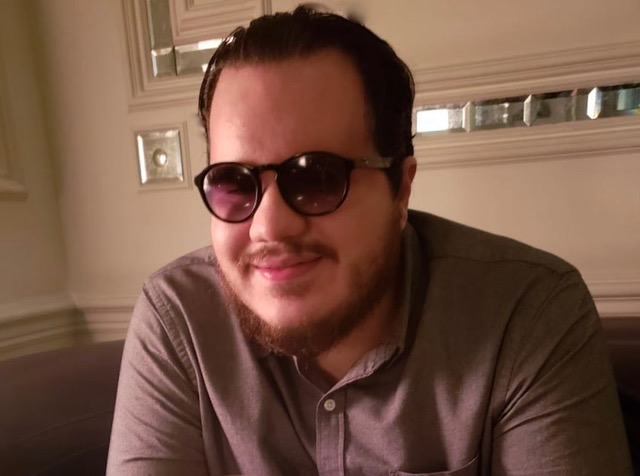
Lucas Gil Nadolskis is currently a master’s student at Carnegie Mellon University, where he is pursuing a degree in computational biomedical engineering. He obtained his BS in computer science from the University of Minnesota in 2021, and after the master’s degree he intends to continue his academic career on a PhD. Lucas’ passion centers on researching neural prosthesis for the visual cortex, an area that he believes can be used to restore useful vision for the blind. Lucas lost his sight at the age of five, due to retinoblastoma in both eyes, and since a young age has been advocating for Braille literacy and digital accessibility.
Personal Website: https://lgnadolskis.github.io
Lab Website: https://smithlab.net/
Twitter: https://twitter.com/lnadolskis
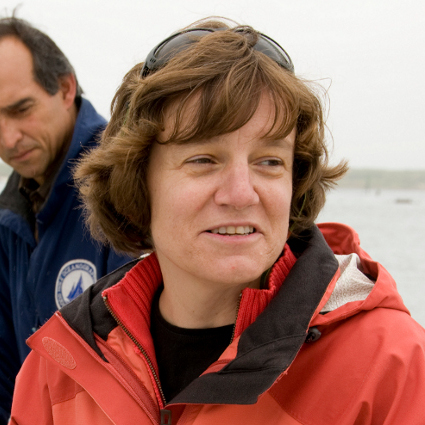
Dr. Amy Bower completed her Bachelor of Science in Physics at Tufts University and her Ph.D in Oceanography at the University of Rhode Island. Since then, she has been a prolific researcher, educator, and advocate for blind individuals in the sciences. She has received several notable awards, including the Unsung Heroine of Massachusetts Aware by The Massachusetts Commission on the Status of Women, the University of Rhode Island Distinguished Achievement Award from the Graduate School of Oceanography, and the Henry Bryant Bigelow Chair for Excellence in Oceanography.
She has been featured at numerous conferences and interviews, such as ACB Radio's "Speaking Out for the Blind", TEDxWoodsHole, and the Texas FOCUS Conference. Throughout her career, she has often participated in outreach to blind and visually impaired students, particularly those at the Perkins School for the Blind.
She is currently a Senior Scientist and Chair of the Department of Physical Oceanography at the Woods Hole Oceanographic Institution. Her research interests focus on understanding the structure and dynamics of the deep ocean circulation and how it plays a role in Earth's climate system using subsurface float technology.
Personal Website: https://www.whoi.edu/scientist/abower/
OceanInsight outreach program: https://web.whoi.edu/oceaninsight/about-amy-bower/
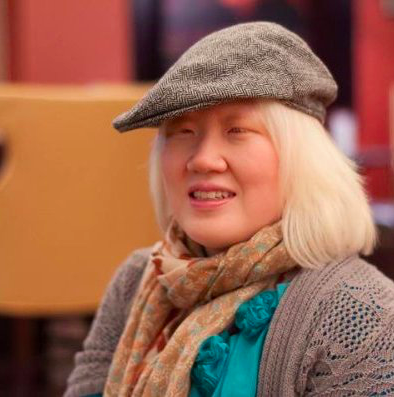
Dr. Stephanie DeLuca earned her Bachelor of Science in Chemistry with a concentration in Biochemistry from the University of Alabama at Birmingham, and her Ph.D in Chemical and Physical Biology from Vanderbilt University. She has received the following awards and honors: National Federation of the Blind’s Oracle Scholarship for Excellence in Computer Science, National Institutes of Health Ruth L. Kirschstein National Research Service Award, a Fulbright Scholarship for pre-doctoral work at the Justus-Liebig University, and a National Federation of the Blind/NASA Goddard Space Flight Center Contractors Association Scholarship.
Dr. DeLuca previously worked at American Chemical Society Office of Public Affairs as a Science Policy Fellow, where her primary responsibilities were to monitor, analyze, and develop public policy regarding federal research funding, education and workforce, energy and environment, and biotechnology. She has also worked with the American Society for Biochemistry and Molecular Biology Public Outreach Committee. Currently, Dr. DeLuca is a Senior Legislative Aide in the Office of Senator Bob Casey.
Some of her research includes work on membrane proteins, the peptide hormone ghrelin, and comparative small-molecule ligand docking. Notably, she has developed novel protein modeling methods for the Rosetta software suite that is used by scientists internationally.
LinkedIn profile: https://www.linkedin.com/in/stephanie-deluca-01931b22
ACS bio: https://www.acs.org/content/acs/en/policy/policyfellowships/fellows/stephanie-deluca.html

Dr. Cary Supalo currently serves as a Research Developer at ETS. His primary responsibilities are assisting with conducting usability studies on current and new innovative products. Additionally, he works with key stakeholders both internally and externally to promote inclusion and equity for all test takers.
Dr. Cary Supalo earned his Ph.D from Pennsylvania State University in 2010 in the field of Chemistry Education. Prior to that he completed his Masters of Science degree in Inorganic Chemistry from Penn State in 2005. Before that he completed his undergraduate studies at Purdue University with a duel degree major in Chemistry and Communications.
His research interest is in making science learning experiences more accessible in a hands-on way for students who are blind or otherwise disabled. He successfully served as Principal Investigator on a National Science Foundation grant to develop the first text-to-speech enabled scientific data logger which he commercialized through his small business called Independence Science. He has also served as a grant reviewer for NSF and the U.S. Department of Education. Additionally, he currently chairs the ad hoc committee for chemistry for the Braille Authority of North America. He leads a group of blind chemists and braille transcribers and are working to revise the Chemistry Braille code 1997 revision. Dr. Supalo, currently is a member of the American Chemical Society’s Committee on Community Activities (CCA). This committee plans for both Chemists Celebrate Earth Week and National Chemistry Week. Dr. Supalo has been appointed to chair National Chemistry Week 2021. He also serves as an active member of the National Federation of the Blind and serves as a mentor for students who are blind seeking careers in Science, Technology, Engineering, and Math.
LinkedIn profile: https://www.linkedin.com/in/cary-supalo-68614b7/
CCSSO Bio: https://ccsso.confex.com/ccsso/2017/webprogram/Person4872.html
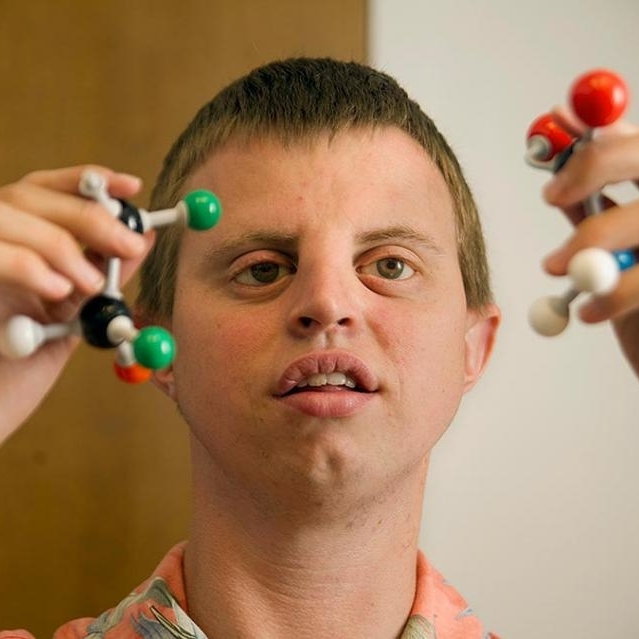
Dr. Hoby Wedler is an insightful, disarming, and passionate thinker who loves to bring people together to help them see new possibilities. With the heart of a teacher, Hoby helps turn your dreams into realities. Hoby has been completely blind since birth. He is a scientist, an entrepreneur, a sensory expert, and is driven by his passion for innovative, creative, and insightful thinking. Hoby is remarkably tuned into his surroundings and has frequently chosen to walk the unbeaten paths in life over known territories. In 2016, Hoby earned his Ph.D. in organic chemistry from UC Davis. His fearlessness is infectious, and he has actively paved the way for others to join him in his quest to follow passions regardless of the challenges that lie ahead.
In 2011, Hoby founded a non-profit organization to lead annual chemistry camps for blind and visually impaired students throughout North America. In the same year, he began opening doors to the world of wine aromas by developing Tasting in the Dark, a truly blindfolded wine experience, in collaboration with the Francis Ford Coppola Winery. He has since expanded the program to a global market in a variety of industries and special projects. Over the years, Hoby has become a motivational speaker, a mentor, and an educator. He is also committed to making the world an inclusive, equitable, and accessible place for everyone.
In his work, you will find a unique trilogy between sensory awareness, scientific knowledge, and a love for sharing his insights.
Numerous people and organizations have recognized Hoby’s work over the years. To name a few, President Barack Obama recognized Hoby by naming him a Champion of Change for enhancing employment and education opportunities for people with disabilities. Also, Forbes Media named Hoby as a leader in food and drink in their 30 under 30 annual publication. Hoby’s dedicated to impacting everyone he works with by unlocking doors, overcoming challenges, increasing awareness, and expanding their horizons.
UC Davis bio: https://gradstudies.ucdavis.edu/news/henry-hoby-wedler
SENSPOINT: https://senspointdesign.com
TEDxSonomaCounty: https://youtu.be/oJDHovTiWBk
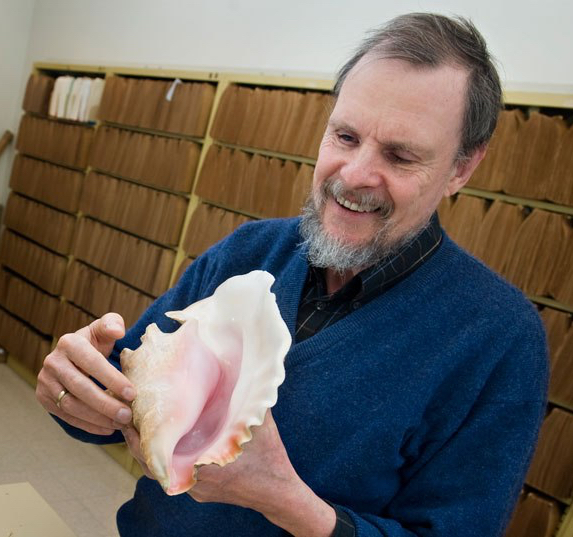
Dutch-born Dr. Geerat J. Vermeij, Professor of Geology at the University of California at Davis, has been blind from glaucoma since he was three years old. Dr. Vermeij is an evolutionary biologist and paleontologist whose focus is on the functional morphology of marine molluscs; the coevolutionary reactions between predators and pretty; and their effects on morphology, ecology, and evolution. “Whether the rocky spire of a 400-million-year-old fossil or the glassy dome of a modern-day cowrie, Dr. Vermeij is quietly reading tales from the history of life.”
Dr. Vermeij is the author of over 200 publication, including five books and peer-reviewed publications in leading journals. His books include Evolution and Escalation, Privileged Hands: A Scientific Life, The Evolutionary World: How Adaptation Explains Everything from Seashells to Civilization, A Natural History of Shells, and Biogeography and Adaptation: Patterns of Marine Life.
Dr. Vermeij received his Ph.D from Yale University, and is a distinguished professor and recipient of the 2004 UC Davis Faculty Research Lecturer Award. He has also received the Fellows Medal from the California Academy of Sciences and the Addison Emery Verrill Medal from the Yale Peabody Museum of Natural History.
UC Davis bio: https://geology.ucdavis.edu/people/faculty/vermeij
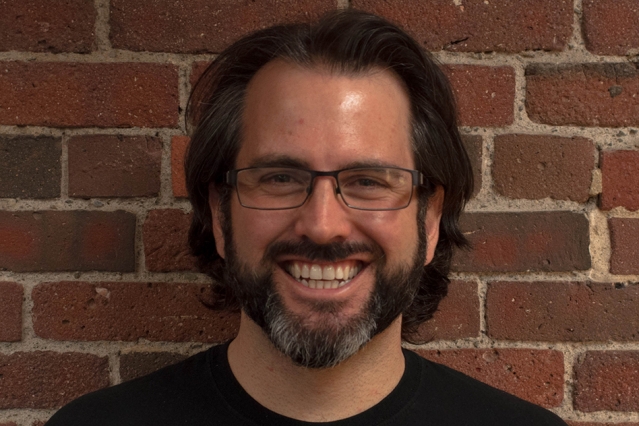
Kyle Keane is a Lecturer and Research Scientist in the Department of Materials Science and Engineering at MIT. He is the creator of the Interactive Materials Education Laboratory (IMEL), which focuses on developing methods to make education more socially, physically, and intellectually reciprocal. Keane is a creative technologist with a strong commitment to disability advocacy and educational innovation. Before joining MIT in 2015, Keane earned his PhD in computational physics and worked as a Research Programmer at Wolfram Research. At MIT, he has taught several courses, including 6.811 Principles and Practices of Assistive Technology, 3.016 Computational Methods for Materials Science and Engineering, and 3.024 Electronic, Optical, and Magnetic Properties of Materials. He is also launching a new course, 3.008 Humanistic Co-design of Assistive Technologies in the Developing World, which will involve fieldwork in India. Keane is passionate about educational technology and accessibility, and his research spans various aspects of education, including social support, emotional investment, computational storytelling, and humanistic co-design. He advocates for increasing accessibility in education and is deeply involved in creating inclusive learning environments.
Personal Website: http://www.kylekeane.com
LinkedIn profile: https://www.linkedin.com/in/kylekeane/
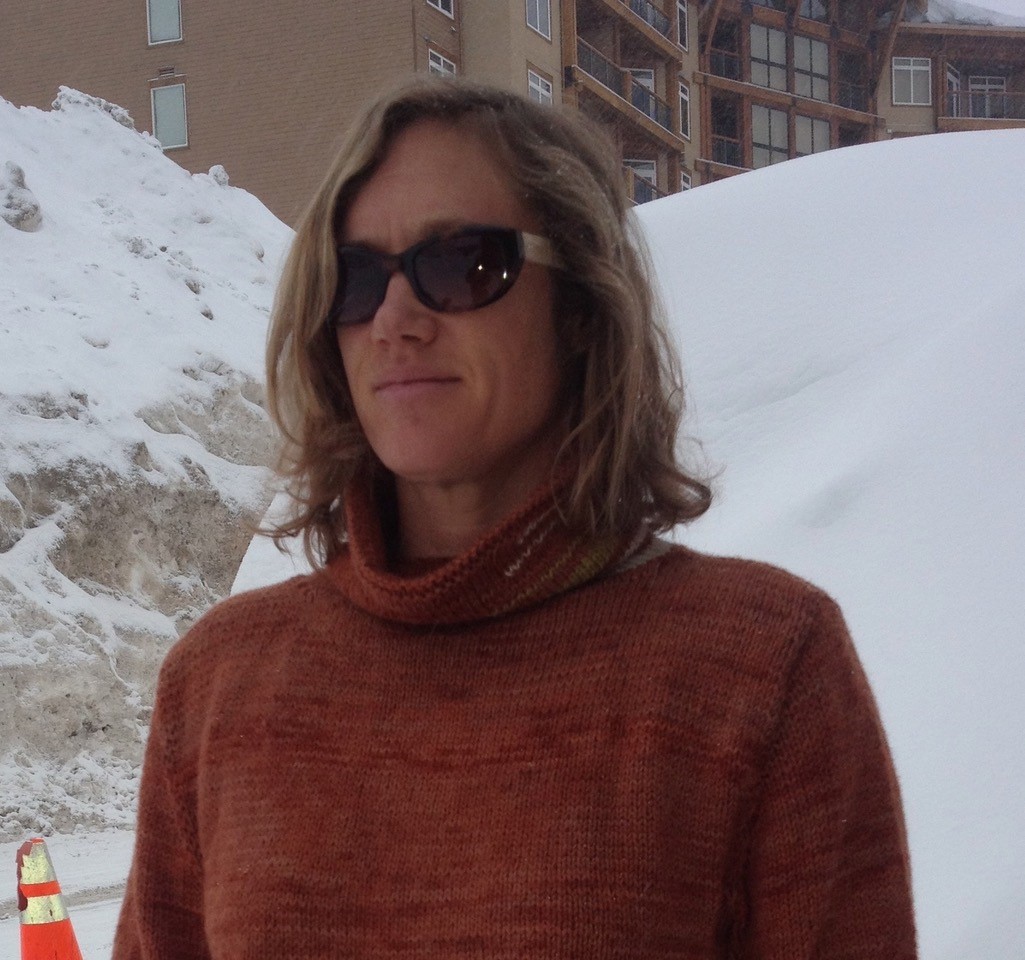
Britt Raubenheimer is an Associate Scientist in the Department of Applied Ocean Physics and Engineering at Woods Hole Oceanographic Institution. She decided to study physics during the ninth grade, when she had a choice between taking either physics or biology (which included cutting up cute little frogs). She fell in love with research while attending Middlebury College, as she worked with astronomers at an observatory in the Canary Islands to collect observations of a supernova remnant. Raubenheimer spent the vacations of her youth backpacking, handgliding, rock climbing, canoe camping, and backcountry skiing, so she knew she wanted to take her physics skills outdoors. She became interested in nearshore oceanography while studying coastal overwash during her first job, at the U.S. Geological Survey’s office in Saint Petersburg, Florida. She completed her training with a doctorate in oceanography from the Scripps Institution of Oceanography. Now her job requires her to go to the beach and to scuba dive to deploy instruments. Raubenheimer recently received a Young Investigator Award from the Office of Naval Research and a Career Award from the National Science Foundation. As part of the latter award, she developed a program offering six-month undergraduate fellowships to expose students to scientific research
Google Scholar: https://scholar.google.com/citations?user=ogD5_aoAAAAJ
LinkedIn profile: https://www.linkedin.com/in/britt-raubenheimer-53a89a8/
Twitter profile: https://twitter.com/BrittRaubenhei1
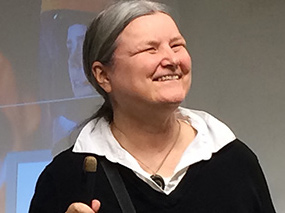
Dr. Sheri Wells-Jensen is an associate professor of linguistics at Bowling Green State University in Ohio. She holds a PhD in Linguistics from the State University of New York, University at Buffalo. Dr. Wells-Jensen’s research interests include psycholinguistics, language preservation, Braille, phonetics, and xenolinguistics. She is the 2023 Baruch S. Blumberg NASA/Library of Congress Chair in Astrobiology, Exploration, and Scientific Innovation. She has also served as a linguistic consultant for Star Trek: Discovery Season 4 and NASA's Europa Clipper project.
LinkedIn profile: https://inkedin.com/in/sheri-wells-jensen-03222a278
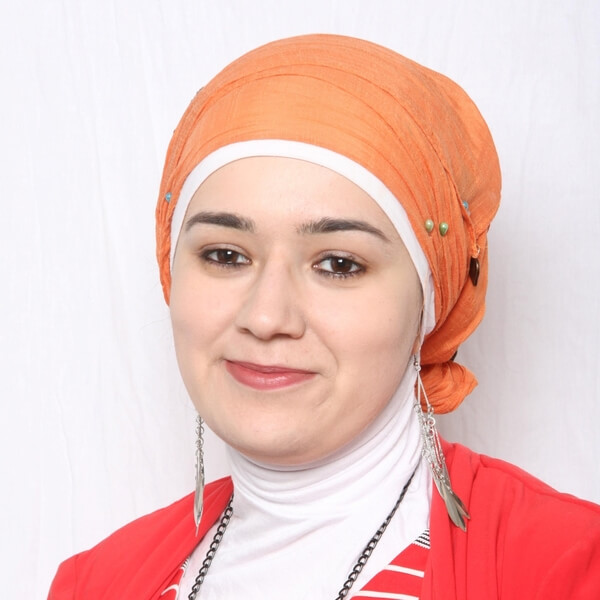
Dr. Naheda Sahtout (Ph.D) is an award-winning academic, researcher, scientist, and leader. Naheda completed her B.Sc. (Honours) in Biology from the University of Waterloo, M.Sc. in Molecular and Cellular Biology from the University of Guelph, and Ph.D. in Chemistry from the University of Saskatchewan. She is currently a Science Analyst in the Office of the Chief Science Operating Officer with the Canadian Food Inspection Agency.
Naheda developed a strong interest in STEM outreach and finding innovative and creative ways of bringing STEM to rural and Indigenous communities during her graduate programs. She also found her passion in enhancing graduate education, and as a student leader worked hard to strengthening the student-supervisory relationship, finding more resources for graduate students, increasing the networking opportunities for graduate students with non-academic partners, and working on initiatives that prepare graduate students for non-academic careers.
Having herself tackled an academic journey with a visual impairment; she is passionate about advocating for inclusivity, diversity, equality and accessibility in science. She is committed to redefining the landscape and finding ways to support women and girls succeed. Her unique background and first-hand experience navigating academia, combined with her fierce and enthusiastic nature, have given her the tools to be an excellent advocate for the matters that are close to her heart.
LinkedIn profile: https://www.linkedin.com/in/naheda-sahtout/

Born in 1991 in Salerno, Italy, with an inherited macular degeneration, Michele Mele obtained a master degree in Mathematics from the University of Salerno and a PhD in Mathematics at the University of Naples ‘Federico II’. He currently works as research fellow at the University of Sannio in Benevento, designing models and algorithms to solve Combinatorial Optimization problems, often related to accessibility and service scheduling. One of his main research interests, and the focus of his PhD program, was the scheduling of assistance services for passengers with special needs in large-scale airports, a problem that he first modelled and solved respecting all the real world inspired constraints that such services have to comply with. In January 2021, he released “L’Universo tra le Dita”, an essay collecting the stories of ten blind or partially sighted scientists that lived throughout the centuries, and in 2017 founded, and still coordinates, the first Italian project to create tactile reproductions of bidimensional artworks for blind and partially sighted people. He also collaborates with a number of journals and websites on other subjects, the most renowned of these is the British folk music related website Bright young Folk.
LinkedIn profile: https://www.linkedin.com/in/michele-mele-phd-4341b4159/overlay/contact-info/
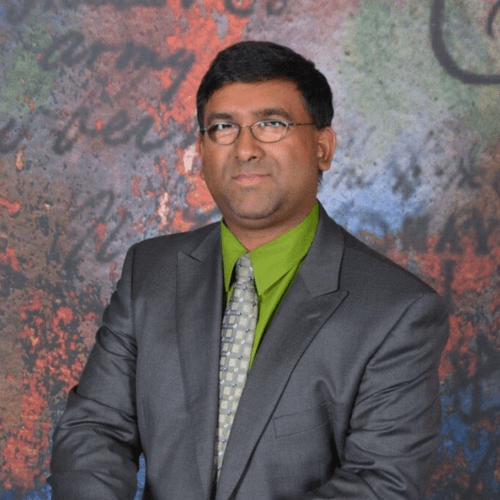
Dr. Mahadeo Sukhai is the world’s first congenitally blind biomedical research scientist. Mahadeo is the Head of Research and Chief Accessibility Officer for the CNIB (Canadian National Institute for the Blind), having previously served as a research scientist at the University Health Network in Toronto. Dr. Sukhai is the Principal Investigator for and co-author of "Creating a Culture of Accessibility in the Sciences," a book based on his groundbreaking work on access to science within higher education, and serves as the principal investigator for national projects to understand the student experience for persons with disabilities, and to examine accessibility and inclusion within science education and healthcare.
LinkedIn profile: https://www.linkedin.com/in/mahadeo-sukhai/?originalSubdomain=ca
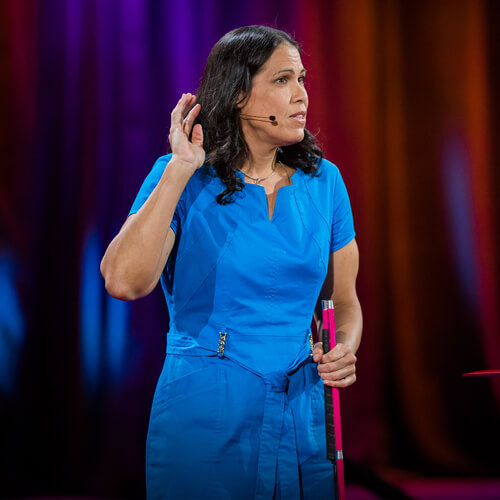
Wanda Diaz Merced is the leading proponent of the sonification of astrophysical data. She currently works at the Gravitational Observatory Office of Astronomy for Development (OAD) leading AstroSense. A project that aims to make astronomy more accessible by building an inclusive environment in the field. She has also traveled the world to study and to promote equality of access to astronomy. “Science is for everyone," she says. "It has to be available to everyone because we are all natural explorers."
It was during her adolescence when she realized she was losing her sight, and it would progressive rapidly until she was fully blind while completing her undergraduate degree. She decided to continue to pursue a degree in astronomy using the sonification of data to let her understand the light curves she could no longer see.
Wanda Diaz Merced has been honored with many awards including, winning one of Google's first annual European Scholarship for Students with Disabilities in 2011, being awarded an Estrella Luike trophy in 2017, and co-charing the Astronomy for Equity, Diversity and Inclusion, at the National Astronomical Observatory of Japan conference in 2019.
She earned her bachelor’s degree in physics at the University of Puerto Rico and her doctorate in computer science from the University of Glasgow where she focussed on spatial data analysis. She has been accepted as a post-doctoral fellow at the South African Astronomical Observatory in Cape Town and the Harvard Smithsonian Center for Astrophysics.
LinkedIn profile: https://www.linkedin.com/in/wanda-diaz-merced-75587b136/k
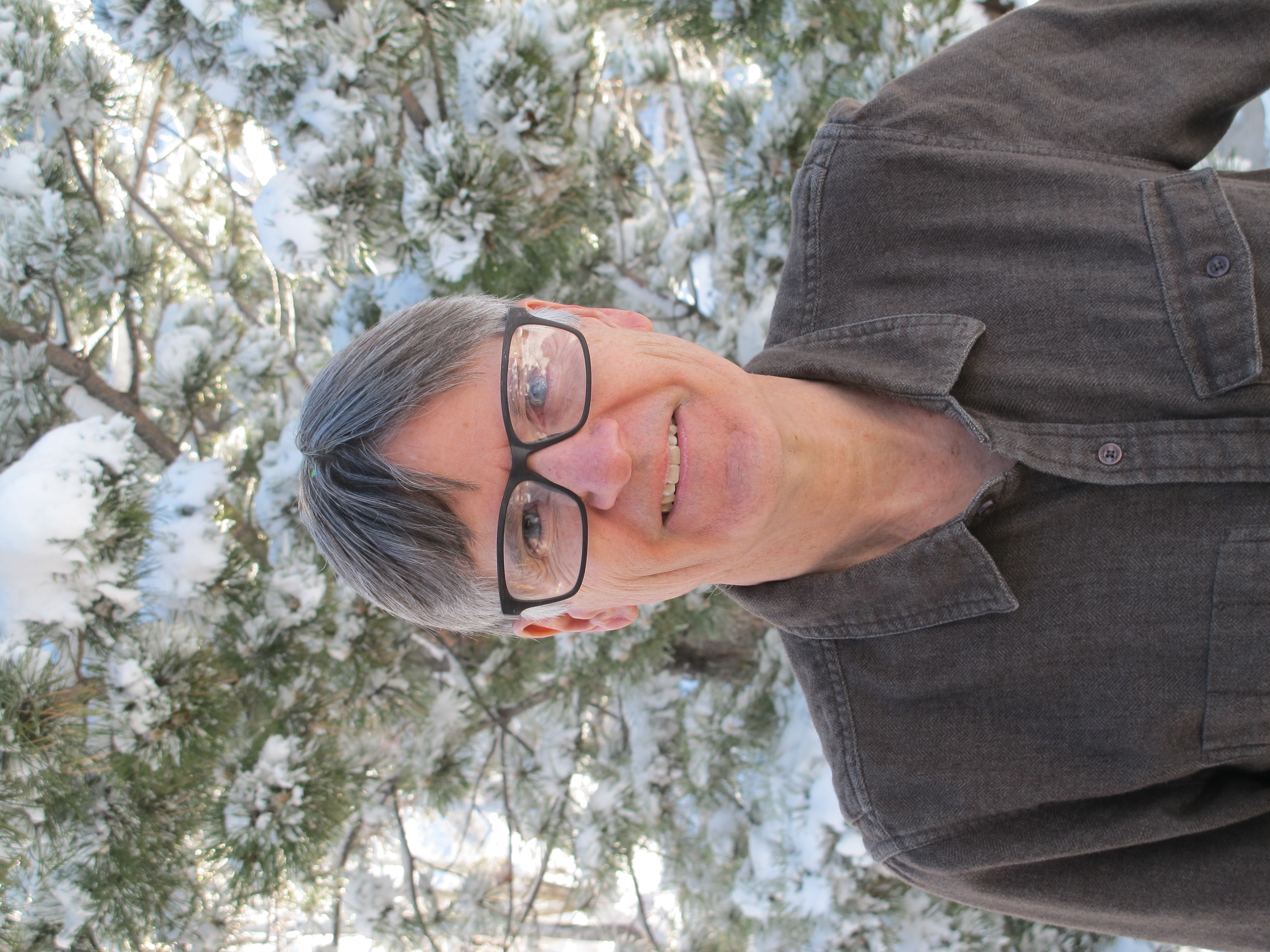
Dr. Peter Torpey was born with congenital glaucoma and attended a school for the blind through 5th grade. With partial vision, he was later mainstreamed through public school and subsequently graduated Phi Beta Kappa with a B.S. in Physics from Union College in Schenectady, New York. Just before starting graduate school, he lost nearly all of his vision and had to relearn his braille skills as well as how to navigate with a cane. After a summer of hard work and determination he began graduate school supported by a Newcomb Fellowship in the fall of 1974.
With the aid of a CCTV and books from RFB&D (now Learning Ally), Dr. Torpey went on to receive a Ph.D. in Physics from the University of Virginia in 1979. He then joined Xerox's Webster Research Center where he developed computer models for next generation printers. In 1995 he was awarded Xerox's President's Award for the unique tools he developed to aid in the design of new printers. In 1997 he became Xerox's youngest Research Fellow and, despite being totally blind by that time, managed a team responsible for creating the image-processing algorithms and print quality specifications for Xerox's ink-jet printers. He holds 20 patents and retired in 2005.
Dr. Torpey and his wife Dr. Nancy Goodman Torpey, who also has a Ph.D. in Physics and spent her career in Corporate Research at Xerox, have been co-hosting and producing the weekly Eyes On Success radio show / podcast for over 10 years now. The show covers a wide variety of topics of interest to the visually impaired including interviews with blind professionals in a variety of fields, shows about new assistive technologies, and much more. They both enjoy hiking and being outdoors in Golden, Colorado where they now live. Nancy and Peter have two grown children as well as two adorable young grandsons.
Personal Website: www.torpey.info
Eyes On Success Podcast: https://www.EyesOnSuccess.net
LinkedIn profile: https://www.linkedin.com/in/peter-torpey/